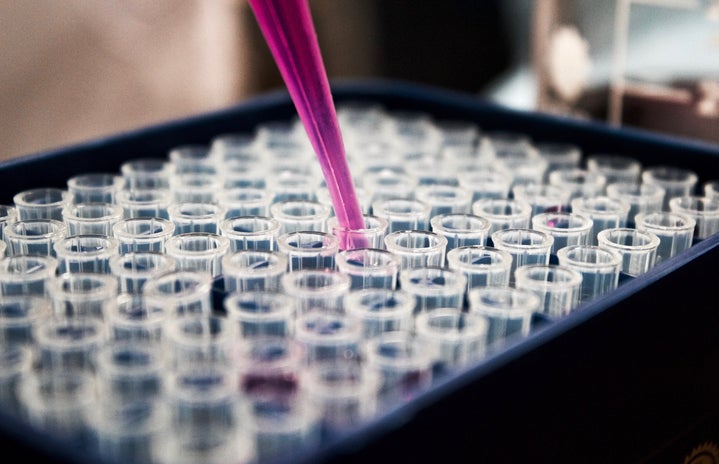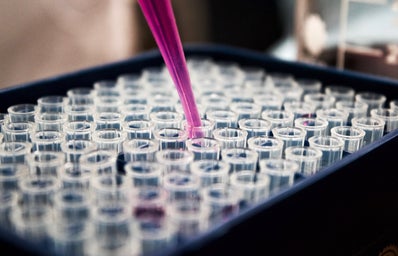We may almost be at the end of September, but now is just as good a time to remind ourselves that this month is Pediatric Cancer Awareness Month. Cancer is the leading cause of death in children under the age of 19. 1 in every 285 Americans will have a diagnosis before the age of 20, and over 250,000 children are estimated to be diagnosed with the disease every day. It is something that is devastating for the patients and their loved ones, yet only 4% of medical research funds are allocated to finding cures for pediatric cancers specifically. Because of this, 2/3 of childhood cancer patients face complications later on in life and chronic conditions from their treatments. There is a lack of awareness of the illness, which is one of the largest hurdles in progress for the disease. This article is just a way to break down a lot of the important science and culture around this condition.
What is Cancer?
Cancer is a disease that comes from the abnormally rapid growth of cells. There is often some type of mutation in the genetic code of the cells that helps the irregularities of the cells be hidden from the stringent checking mechanisms of the body. Most living creatures have mutated cells begin to form, but thanks to nature’s many detection mechanisms, such DNA polymerase reading over the code during DNA synthesis or apoptosis getting rid of improperly formed cells in the cell cycle. However, cells can make it through these checkpoints and if the body does not recognize them fast enough, they can have negative impacts. Cancerous cells tend to grow faster than the average cells, creating a lump or mass. A mass can be either benign, which essentially means that it does not expand, or malignant, which means the mass grows more rapidly and can spread – either in the area it formed or throughout the body. Malignant masses are what we refer to as cancer, and they can occur anywhere in the body, from the bones to the skin.
Why is Pediatric Cancer Treatment Such An Issue?
Children have developing bodies, which means that they are under constant change. Because of this, pediatric versions of cancer need specific therapies to minimize the potentially detrimental impacts on the growth of children. In addition to this, a combination of various drugs or treatments are typically used to treat cancers and it is important to be careful to avoid side effects from drug interaction. Commonly, forms of chemotherapy drugs are used, as many pediatric cancers are fast-growing. However, these drugs can increase the likelihood of short-term and long-term effects on the patient. Radiation is a treatment commonly used with adult cancers, but it can be very detrimental to a pediatric patient, which is why it is typically avoided, especially in younger patients. Newer targeted therapies, such as genetic-based ones and immunotherapy, seem very promising, but with such little funding dedicated to pediatric cancer research, there aren’t as many options. This is why, despite years of progress making the survival rate of the disease around 90%, many rarer forms of pediatric cancer actually have higher mortality rates today and the number of cases observed increases each year.
How Can We Help?
The good news is that there are many organizations dedicated to supporting families going through this journey. A great resource to learn more about the disease is the National Pediatric Cancer Foundation. The organization works to fund research for pediatric cancer and their website is a great resource to learn more about this family of diseases. UGA also has many organizations that support pediatric cancer patients and their families. Aurora at UGA is a branch of an organization that works to put on a summer camp that is free for pediatric cancer patients and their siblings. Throughout the year, the club has service projects, such as their Anytime Bags, that help to bring joy to the patients in the hospital. A focus of Aurora is ensuring that these children still have their childhood, despite going through such a difficult time. Cancer Support Community at UGA is a branch of the world’s largest professionally led organization regarding cancer support, and they work to help increase knowledge and awareness of all types of cancer around the world. Miracle at UGA is another organization that raises funds for Children’s Healthcare of Atlanta, specifically for the Aflac department, which focuses on pediatric cancer and blood disorder patients. Check out any of these clubs if you are interested in getting involved, or you just want to learn more about the cause.
September may be pediatric cancer awareness month, but you can always learn more and support the cause year-round. Pediatric cancer is quite a devastating journey, but with more awareness about the cause, hopefully, progress can be made!
Sources:
Home – National Pediatric Cancer Foundation (nationalpcf.org)
DNA proofreading and repair (article) | Khan Academy
Childhood Cancer Statistics • Addi’s Faith Foundation (addisfaithfoundation.org)



